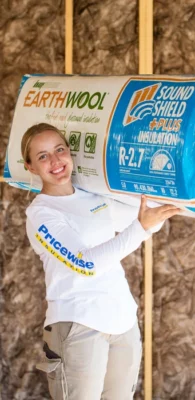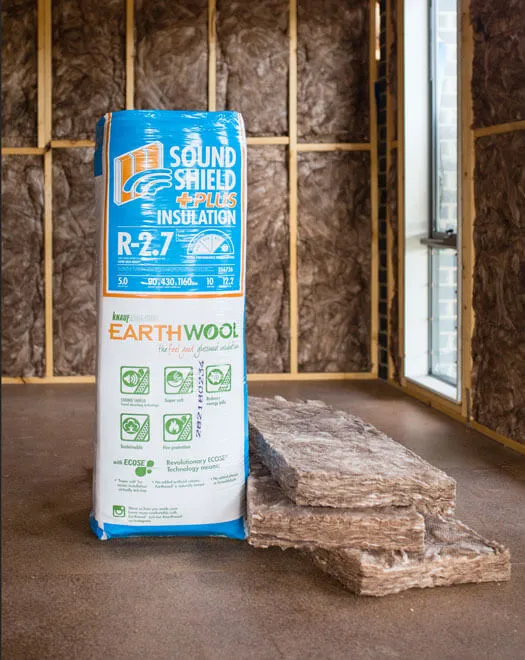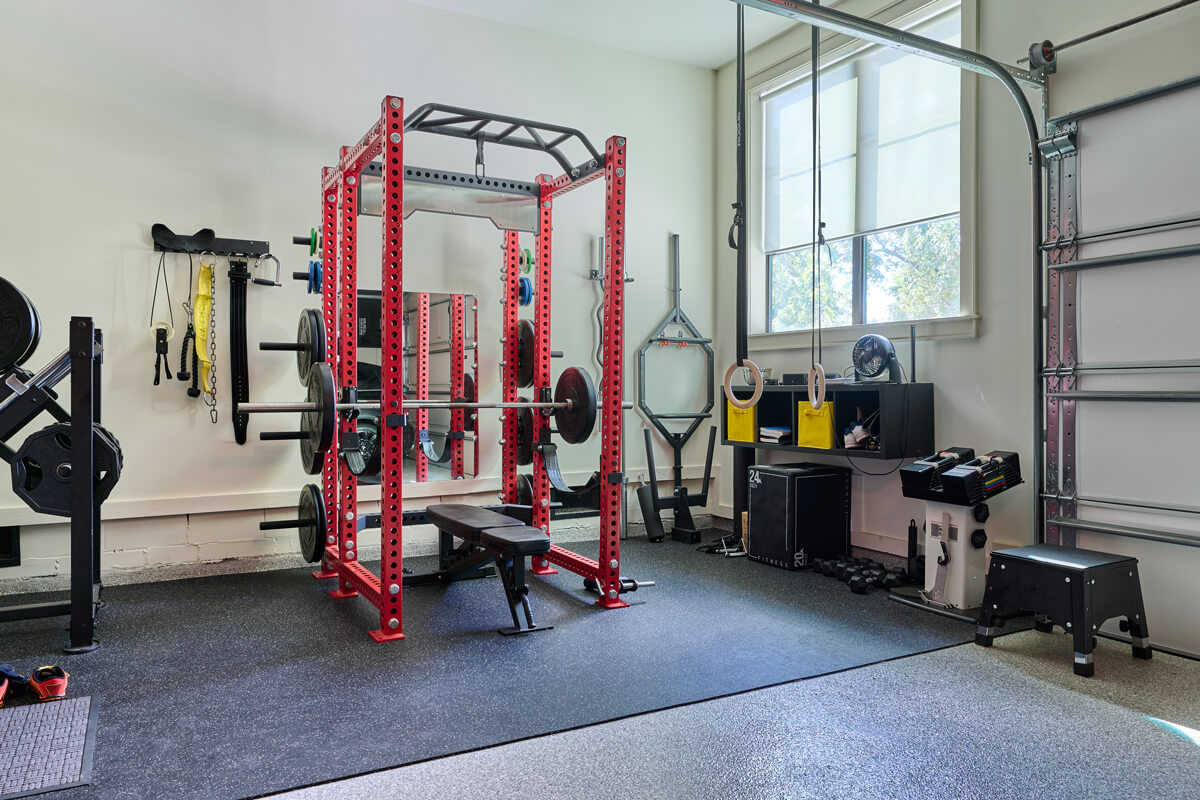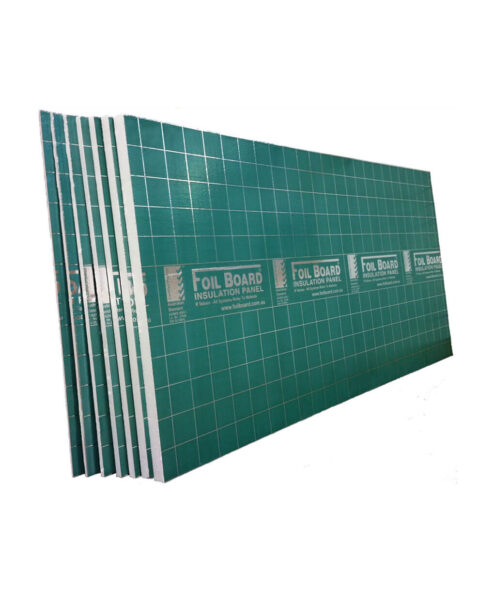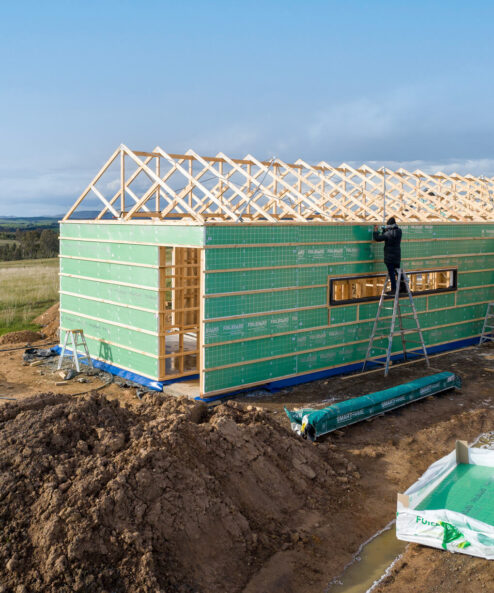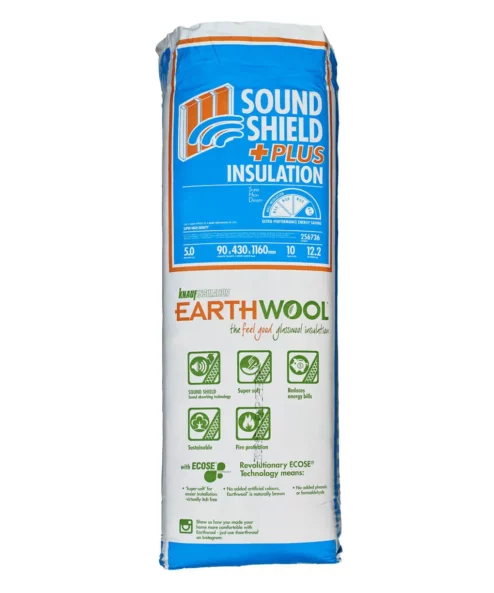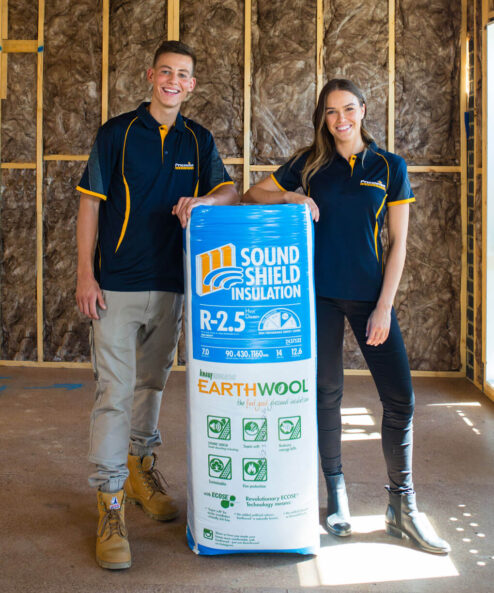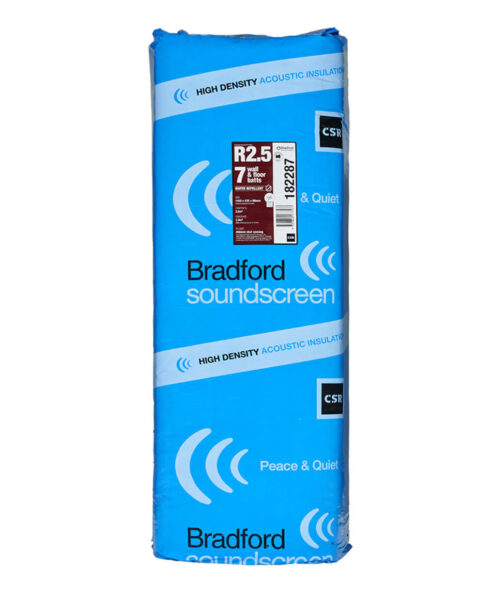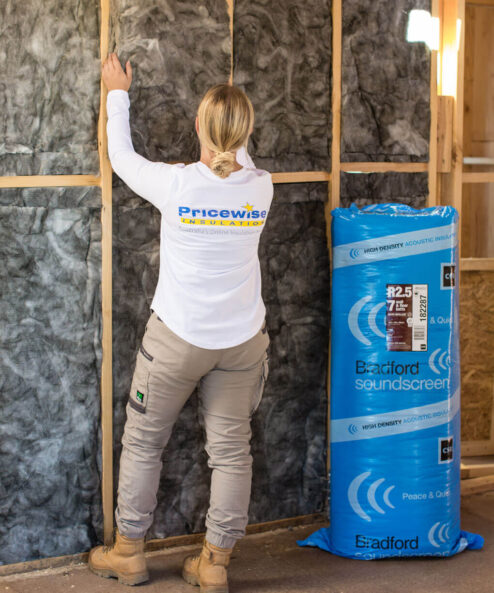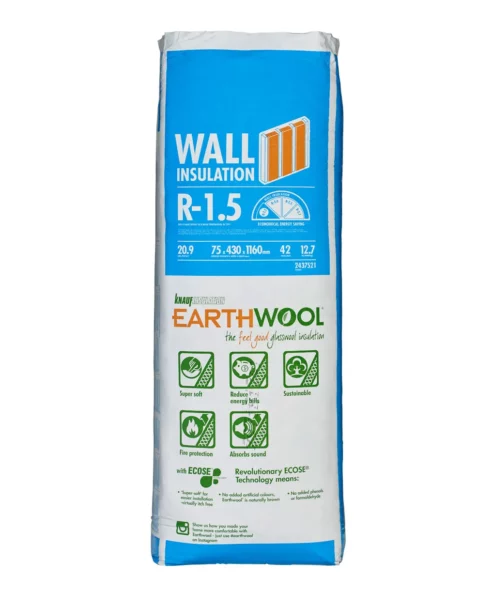Insulation Tips
Tips For Choosing the Best Garage and Garage Door Insulation
With the help of our comprehensive garage insulation guide, you can easily get started on turning your garage into a versatile and usable space that the whole family can enjoy.
Placing insulation in your garage is the key to preventing heat and noise transfer and maintaining a comfortable and consistent environment throughout all seasons. Insulation has the ability to provide you and your family with many lasting benefits.
Without insulation, regardless of the size of your garage, temperatures quickly become unstable and unpleasant. When it comes to getting your garage insulated, there are many options.
Whether the focus is on finding the perfect material for your garage door, walls, or ceiling, Pricewise Insulation has the best garage insulation tips that will make finding materials for your project a breeze. Read about our top insulation brands and get DIY tips from our handy guide below.
Types of Garage Insulation
There are many insulation options suitable for garages. Each works by restricting heat transfer and sound (R-value relates to heat transfer, density kg/m3).
The best garage insulation kit or material greatly depends on the area you need to insulate.
Glasswool Insulation (aka fibreglass insulation)
Ideal for the walls and ceiling of the garage. Glasswool is cost-effective, easy to install and available in a range of R-values. Glasswool doesn’t catch fire, and won’t rot or attract vermin. It will need to be lined with plasterboard or timber. We recommend Earthwool Sound Shield and Earthwool Ceiling Insulation.
Polyester Insulation
Another great option for the walls and ceilings, particularly if the insulation will remain exposed. Polyester insulation is non-flammable and contains no breathable fibres (making it a perfect choice for asthma and allergy sufferers).
Foam Insulation Panels (with foil-facing)
These are an affordable and easy DIY solution for garage doors. They are also light enough to not affect the mechanics of the garage door. We recommend the Foilboard Garage Door Insulation Kit.
Insulating Your Garage Door
Garage door insulation is essential to achieving thermal efficiency in your garage. Insulating the door prevents heat leakage, especially if your garage is connected to your home.
Insulating a garage door also helps to block noise transmission both internally and externally.
What is the best insulation for a garage door?
As garage doors frequently open and close, insulation must be lightweight and effectively installed. As mentioned, foam insulation panels with foil facing (like Foilboard) are easy to install and lightweight enough not to affect the mechanics of a garage door.
A rigid form of insulation like this is a good option for wooden frame-and-panel garage doors. Metal garage doors can also suit other forms of insulation materials like glasswool.
We recommend our easy-to-install Foilboard Garage Door Insulation Kit, which helps improve the insulation of your garage all year round.
Insulating Garage Walls
Selecting wall insulation for your garage will make up a major part of your insulation project. Evenly distributed wall insulation is required to effectively limit noise and achieve thermal efficiency in your garage. This will help maintain a comfortable temperature and reduce energy bills (especially if a wall is shared with your home).
Insulation makes it possible for you to use your garage during any season, protect personal items more effectively and even store food.
What insulation is best for garage walls?
Our R2.0 or R2.5 rated products are both great options for insulating garage walls.
Glasswool is an affordable option that’s easy to cut with a knife and holds millions of tiny air pockets that provide exceptional insulating properties.
While slightly more expensive, polyester insulation holds many of the same benefits as glasswool. It’s soft to handle and also contains no breathable particles, making it a great choice for asthma and allergy sufferers.
Insulating Garage Ceilings
If you want to turn your garage into a versatile and usable space like a gym, workstation, or playroom for the kids, adding ceiling insulation will be important.
Without ceiling insulation, energy can quickly escape and go to waste. In fact, 35% of heat gain and loss occurs through the ceiling. While you may be tempted to save money, and only insulate your garage walls and door, doing so will reduce the effectiveness of any cooling and heating used in the garage or attached home.
With strong-performing insulation, your garage space can be enjoyed in all kinds of weather and prevent unwanted heat transfer. We recommend a thicker batt type, such as our high-quality R4.0, R5.0 or R6.0 ceiling insulation products, which are designed to deliver optimum performance. These products offer a high R-value (also known as R-rating), offering a high resistance to transferring heat.
Garage Insulation Brands
Earthwool:
A form of glasswool, Earthwool provides eco-friendly properties, thermal efficiency and sound-absorbing capabilities.
Pros:
- Made from recycled glass bottles
- Fully recyclable, compressed packaging makes it easy to store
- No added formaldehyde, dyes, bleaches or artificial colours
- 50-year warranty
- Soft, easy to work with and less itchy than other glasswool products
- Non-combustible, rot-proof and essentially odourless
Cons:
- Imported
- Fit is potentially less firm than Pink Batts’ in the lower R-values.
Recommended use:
- Garage walls
- Garage ceilings
Foilboard
Made from a fire-retardant expanded polystyrene core and laminated with pure aluminium foil on both sides for superior insulation, thermal break and a non-permeable moisture barrier.
Pros
- Prevents condensation and mould
- Safe to handle (fibre free)
- Lightweight
- 25-year performance guarantee
- 100% recyclable and eco-friendly
- Won’t shrink, or droop
- Australian-made and owned
Cons:
- Trickier to store (panels must be dust-free to remain fully effective)
- More dependent on installation techniques.
Recommended use:
- Garage doors
Pink Batts (Fletcher)
Offers products made from resilient glasswool that provides thermal and acoustic insulation.
- Has many of the same properties as Earthwool
- Made in Australia, from recycled bottles and sand
- Lightweight, resilient, non-combustible, low allergen
- Lifetime guarantee
Cons:
- Requires more storage space than Earthwool
- It can be itchy if handled
- Mild odour.
Recommended use:
- Garage walls
- Garage ceilings
Installation and DIY Tips
DIY home insulation projects are fun, as long as you prepare accordingly.
Step 1. Pick the right type of insulation
- Choose the best material for your needs and budget.
- View our recommended insulation brands and select the materials most suited to each area.
- Consider if the R-values are appropriate for your climate.
Step 2. Always consider work safety and tools
- Wear a mask, gloves, safety glasses, and work boots (check out our DIY Install Kits)
- Bring essential tools like a stepladder, staple gun, and knife for cutting pieces
- Clean up any loose materials as you go to avoid safety hazards.
Step 3. Measure how much insulation you’ll need
- Cut and measure pieces to fit along each garage frame.
Tips:
- Start by placing insulation in tight corners and along the edges
- Avoid gaps
- To insert panels, start at the top and line them up on either side
- Try to insulate behind wires, or cut around them.
Benefits of Proper Garage Insulation
Your garage can be more than just a place to store your car. With proper insulation, you can turn it into a comfortable and versatile space. From a study, playroom, or calm workout space, the possibilities are endless.
Uninsulated garages are uncomfortable to be in even for short periods. Insulation allows you to store personal items like food more effectively, and a consistent environment is also better for your car’s battery.
A garage attached to your home can also affect the temperature efficiency of the rest of your home. Installing insulation in your garage will lead to improved temperatures throughout all seasons and help reduce your energy bills.
Insulation helps to keep noise from leaking out and prevents it from coming in. So, you won’t have to worry about bothering the neighbours, or the household with noisy activities ever again. Insulation can also add value to your property.
Easy DIY Insulation
If you’ve never tried to insulate before, don’t fear: your garage is an easy and rewarding place to start.
Garages usually feature a simple design layout. In general, a typical double garage in Australia is 6 metres by 6 metres (total 36m2), which is really a small area to insulate.
Once you’ve chosen your insulation, taken measurements and accounted for any additional tools, all you need to do is stick to the right safety precautions and distribute materials carefully.
Whether you’d like to start on your garage walls, or ceiling, check out our DIY installation videos and how-to guide. These provide a common rundown of the installation process to help you get started.
If you’d like to start with something extra simple, our Foilboard Garage Door Insulation Kit has all the right tools to get your project going. It’s a great DIY activity that’s guaranteed to improve the comfort of your garage all year round.
Maintenance and Long-Term Performance
While the brands we supply typically offer a minimum of a 25-year performance guarantee, garage insulation should still be maintained. You may even choose to use a combined method of bulk and reflective insulation to boost your R-value and increase thermal resistance and performance.
Although internal insulation should generally be maintenance-free, if fitted properly, unforeseen events, such as roof leaks, can mean your insulation will need to be replaced. Maintain your garage insulation by looking for mould, discolouration or condensation, as it may indicate a leak in your roof or poorly insulated areas.
You can ensure optimal performance of garage insulation by avoiding a few pitfalls. If there are windows in your garage, pay attention to how weather-tight they are. Insulation should be installed evenly. Don’t compress bulk insulation, and make sure it isn’t wet prior to installation. If insulation is packed too tight, it can produce air pockets that reduce its effectiveness.
Conclusion and Next Steps
Insulating a garage is a rewarding and simple DIY project to get started on. It provides long-lasting benefits, from improved thermal efficiency to noise reduction.
After taking the time to consider the best types of insulation for you, understanding material differences and following a few key steps, adding insulation to your garage is pretty straightforward.
Adding insulation to your garage will make it a comfortable and versatile space for the whole family to enjoy. And with so many benefits you’ll quickly regret you didn’t insulate a garage or shed sooner!
Whether you’re after effective insulation for your garage door, walls or ceiling, at Pricewise Insulation, we sell a great range of top insulation brands, available to you at discounted prices. Shop the whole range and start insulating now!
If you’d like to learn more about any of our garage insulation options, get in touch with our expert team today.

